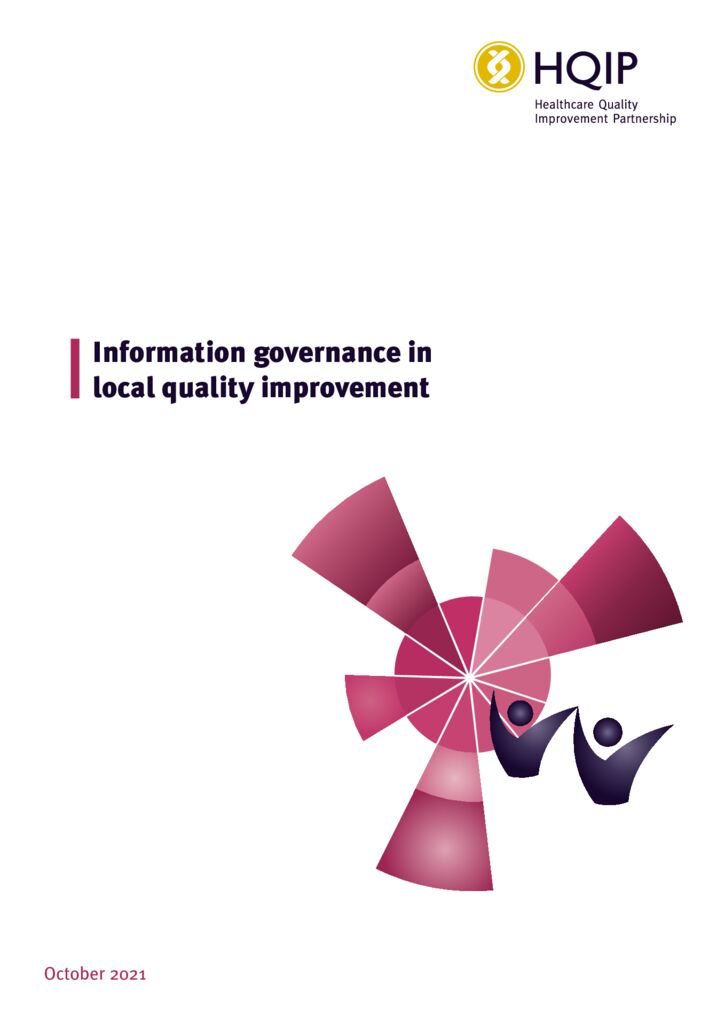Information governance in local quality improvement
This guide describes how information governance (IG) laws and principles apply to the use of personal data in local or regional multi-agency healthcare quality improvement studies such as clinical audit, productivity reviews, intervention testing, and service evaluation.
It is designed to assist clinicians, quality improvement specialists, support staff and service users who lead, take part in, or review, local and regional quality improvement studies such as clinical audits, with the application of IG law to their work.
Disclaimer: Due to the dynamic nature of IG, readers are advised to seek expert advice and refer to updated national guidance as appropriate. This guidance document does not constitute legal advice. HQIP will highlight changes and update this page with links to national information where appropriate as it becomes available.
Updates
This guide was reviewed and updated in November 2021. Going forward, we will not be updating this guide, however you can find important updates below:
Organisational changes
- Merger of NHS Digital and NHS England in February 2023 which transferred the functions of NHS Digital to NHS England and abolished NHS Digital. This was followed by the incorporation of the body responsible for the education and training of the health workforce – Health Education England – into the new NHS England on 1 April 2023. This way NHS England becomes the custodian of national health and social care datasets and the single executive non-departmental public body with responsibility for digital technology, data and health service delivery in the NHS.
More information on the mergers can be found here. - PHE was replaced by UK Health Security Agency and Office for Health Improvement and Disparities.
- Integrated care systems (ICS). ICS have two statutory components: integrated care boards (ICBs) and integrated care partnerships (ICPs). ICBs will take on the commissioning functions of CCGs and are responsible for developing integration and collaboration, and for improving population health across the system. ICBs are accountable for NHS expenditure and performance within the system. They can exercise their functions through place-based arrangements. ICPs are statutory joint committees established by ICBs and their partner local authorities in the system. ICPs bring together partners from across the system to develop an integrated care strategy to address the health, social care, and public health needs of the population.
Please send any feedback or comments to us by emailing [email protected]


